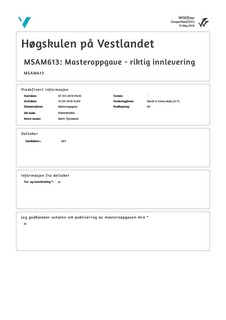| dc.description.abstract | The theme for this master’s thesis is education and gender. This is achieved analyzing the perceptions and opinions among a group of rural Maasai in Northern Tanzania. The Maasai are well known in tourism, but they are not well studied. They have traditionally been reluctant to accept formal education, but this is seeming to change. This thesis explores how education is experienced as a solution or a threat for rural Maasai. It discusses how the perspectives aregendered, and how power and empowerment changing with education. The opinions expressed on these subjects may be based on the different rationality of the logic of pre-capitalist societies. To try to understand this, Pierre Bourdieu’s Theory of Capitals has been used along with different views of economy, such as Chayanov’s Peasant Theory and Risk Aversion. Neila Kabeer’s framework for empowerment is used to analyze the described situation of feeling powerless, and gender is discussed through Marxist feminism and Judith Butler’s understanding of performative gender. This thesis is a qualitative project based on interviews, focus groups discussions, and observations and field conversations. The informants have been from rural villages and are equally distributed in age and gender. In total, I spoke to thirty-eight participants through focus group discussions and individual interviews, without counting the field conversations.
The empirical evidence on which this analysis is based shows a growing acceptance to secondary education, but with a set of obstacles and misunderstandings that hinder many in continuing their education. There is a gendered bias, which favors boys when investing in education, although it seems generally accepted that girls also benefit from a secondary education. The adult and older participants describe a society where men and women are segregated. The women feel suppressed and in need of empowerment to act in their own society. Both the men and the women feel disempowered when dealing with the outside community. Education is a commonly accepted factor to change these issues in time: To increase equality and empower the individuals within their community and when meeting the surrounding community. | nb_NO |

